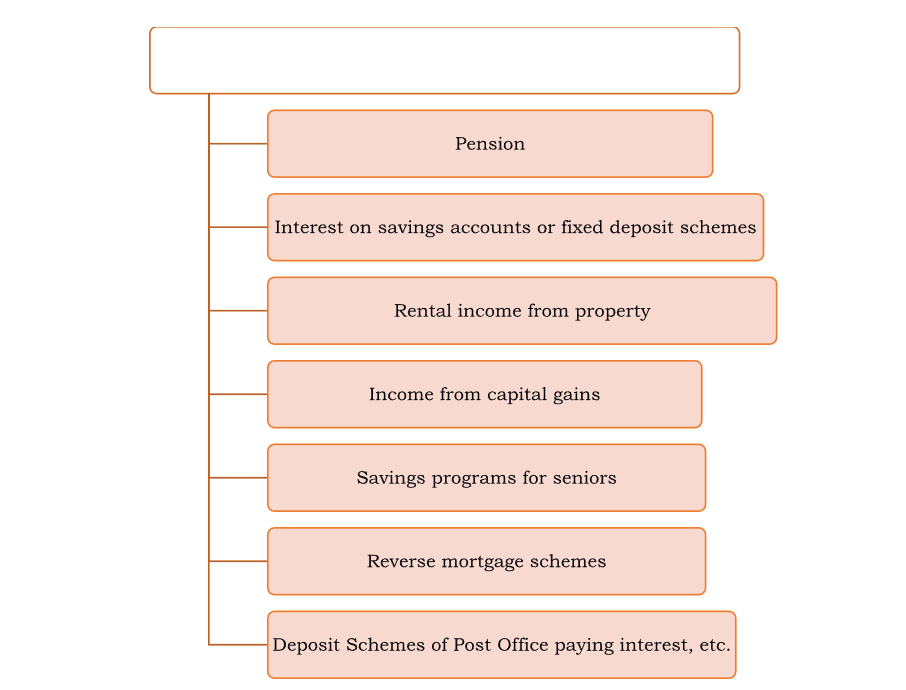
Are you inquisitive to know about the income tax slab for senior citizens? Income tax is a crucial yet difficult part of managing your money in your later years. But after reading this article you won’t be left with any questions. In this article, we’ll explain the fundamentals of income taxation for seniors in plain terms so that you may better understand your duties and potential advantages. So let us discuss on Income Tax Slab for Senior Citizens.
What is an Income Tax Slab?
The earning of every individual is subject to income tax in India. Income tax slabs are a range or bracket of incomes that are subject to this tax. The annual rate of income tax varies. The Union budget’s low income tax rates are annually announced by the finance minister. Individual taxpayers’ income tax obligations are determined by the system of weaknesses they are subject to. A person’s income is assessed to determine which tax bracket they are in. Higher income earners will therefore be required to pay more in taxes.
Sources of Income for Senior and Super Senior Citizens
Senior and super senior citizens generally receive income from the below-mentioned sources:

Income Tax for Senior Citizens under New Tax Regime
Do you know who all are considered as senior citizens? Well, Senior citizens are the people having 60 years of age or older but below 80 years of age. People aged 80 years or older are referred to as “super senior citizens” in India. The new tax regime classifies the income tax rate as the same for seniors and super seniors. The tax applicable to individuals over the age of 60 and under the age of 80 for the fiscal year 2023-2024 is-
| Income Slab | Rate of Tax |
| Up to Rs. 2,50,000 | No tax |
| From Rs. 2,50,001 to Rs.5,00,000 | 5% |
| From Rs. 5,00,001 to Rs.7,50,000 | 10% |
| From Rs. 7,50,001 to Rs.10,00,000 | 15% |
| From Rs. 10,00,001 to Rs.12,50,000 | 20% |
| From Rs. 12,50,001 to Rs.15,00,000 | 25% |
| Above Rs.15,00,000 | 30% |
- Surcharge if total income is more than Rs 50 lakh and up to Rs 1 crore: 10% of income tax.
- Surcharge if total income is more than 1 crore rupees: 15% of income tax.
- Income tax exemption is up to Rs 2.5 lakh.
Income Tax Slab for Senior Citizen under Old Regime
The Income Tax for senior citizens slabs for FY 2023-24 is given below:
| Income Slab | Rate of Tax |
| Up to Rs. 3,00,000 | Tax-free |
| From Rs. 3,00,001 to Rs. 5,00,000 | 5% |
| From Rs. 5,00,001 to Rs. 10,00,000 | 20% |
| Above Rs. 10,00,000 | 30% |
Income Tax Slab for Super Senior Citizen under Old Regime
The Income Tax for super senior citizens for FY 2023-24 are as follows:
| Income Slab | Rate of Tax |
| Up to Rs. 5,00,000 | Tax-free |
| From Rs. 5,00,001 to Rs. 10,00,000 | 20% |
| Above Rs. 10,00,000 | 30% |
Deductions for Senior Citizens under the New Income Tax System
According to the Union Budget for 2023–24, the following deductions are available to senior citizens:
- Rebate under Section 87A: The Section 87A rebate amount for the FY 2023–24 (AY 2024–25) has increased from 5 to 7 crores. We can say that instead of Rs. 12,500, senior and super senior citizens might now receive a tax credit of Rs. 25,000. However, as per the old tax regime rebate, which is Rs. 25,000 for taxable income up to Rs. 5,000, is still in effect.
- Pension: The new income tax regime, (starting in the years 2024–2025) offers a standard deduction of Rs. 50,000. This holds for pensions that come in the form of taxable annuity payments that resemble salary as covered by section 80D.
- Health Insurance: Seniors may deduct up to Rs. 50,000 annually from their medical costs and/or health insurance premiums under Section 80D. Additionally, as previously indicated, dependent senior citizens may deduct up to one lakh rupees for serious illnesses. This is covered under section 80DDB.
Are there Exemptions under the New Income Tax Regime for Senior and Super Senior Citizens?
The majority of tax exemptions that would otherwise be available under the previous or current income tax system would be forfeited by an individual taxpayer who chooses the new tax system.
There is no higher basic ceiling of exemption under the new tax system for senior citizens and super senior citizens for the fiscal years 2023–2024. This suggests that the fundamental exemption ceiling for every person, regardless of age, would be 3 lakhs for a specific financial year. This fundamental exemption cap was fixed at 2.5 lakhs for FY 2022–2023.
Income Tax Calculation for Senior Citizens
The basic guidelines for calculating income tax for senior citizens in India are the same as those used for other taxpayers. Senior citizens are, nevertheless, eligible for several unique tax advantages and exemptions. All forms of income, including pensions, rental income, interest, income from savings plans, fixed deposits, postal savings plans, and reverse mortgages, are subject to income tax for seniors.
The calculation is as follows-
- Classify your income into various groups, such as salary, pension, interest, rental income, capital gains, etc. For an appropriate tax estimate, be sure to take into account all sources of income.
- Senior citizens are entitled to a higher basic exemption limit than non-senior citizens under basic income tax rates. The current basic exemption threshold for senior citizens (those 60 years of age and over) is Rs. 3 lakh for the old tax system.
- Consider the senior citizen-specific exemptions and deductions. Tax deductions under Section 80C, Section 80D, Section 80DDB, and ordinary deductions are applicable to senior citizens in addition to regular deductions.
- To determine your taxable income, subtract all deductions and exemptions from your total income. They must take into account retirement benefits and tips.
- Based on the applicable tax rates for the fiscal year, determine the tax obligation. Calculate tax surcharges and credits. Certain discounts or reliefs are available to senior citizens with reduced incomes.
- File your Income Tax Return (ITR) online or offline after determining your tax liability. When reporting your income, deductions, exemptions, and taxes paid, be sure to be exact.
Final Words
Some special tax benefits have been provided to senior citizens in India. These special income tax benefits include exempting some income from tax on higher incomes for selected expenses given limited earning capacity and high medical expenses. By knowing all these benefits, senior citizens will be able to better plan their investments and even save to avoid income tax.
In case of any query regarding the Income Tax Slab for Senior Citizens, a team of expert advisors from Legal Window is here to assist you at every step. Feel free to reach us at admin@legalwindow.in.
CA Pulkit Goyal, is a fellow member of the Institute of Chartered Accountants of India (ICAI) having 10 years of experience in the profession of Chartered Accountancy and thorough understanding of the corporate as well as non-corporate entities taxation system. His core area of practice is foreign company taxation which has given him an edge in analytical thinking & executing assignments with a unique perspective. He has worked as a consultant with professionally managed corporates. He has experience of writing in different areas and keep at pace with the latest changes and analyze the different implications of various provisions of the act.
Categories
- Agreement Drafting (23)
- Annual Compliance (11)
- Change in Business (36)
- Company Law (148)
- Compliance (90)
- Digital Banking (3)
- Drug License (3)
- FEMA (17)
- Finance Company (42)
- Foreign Taxation (6)
- FSSAI License/Registration (14)
- GST (118)
- Hallmark Registration (1)
- Income Tax (200)
- Latest News (34)
- Miscellaneous (164)
- NBFC Registration (8)
- NGO (14)
- SEBI Registration (6)
- Section 8 Company (7)
- Start and manage a business (21)
- Startup/ Registration (128)
- Trademark Registration/IPR (40)
Recent Posts
- Post incorporation compliances for companies in India April 30, 2024
- Startup’s Guide to Employee Stock Ownership Plans April 29, 2024
- Master Secretarial Audit: A Complete Compliance Guide April 27, 2024
About us
LegalWindow.in is a professional technology driven platform of multidisciplined experts like CA/CS/Lawyers spanning with an aim to provide concrete solution to individuals, start-ups and other business organisation by maximising their growth at an affordable cost.









